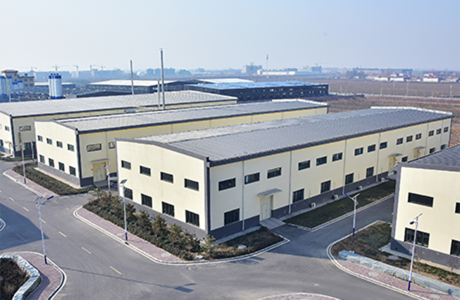- Afrikaans
- Albanian
- Amharic
- Arabic
- Armenian
- Azerbaijani
- Basque
- Belarusian
- Bengali
- Bosnian
- Bulgarian
- Catalan
- Cebuano
- Corsican
- Croatian
- Czech
- Danish
- Dutch
- English
- Esperanto
- Estonian
- Finnish
- French
- Frisian
- Galician
- Georgian
- German
- Greek
- Gujarati
- Haitian Creole
- hausa
- hawaiian
- Hebrew
- Hindi
- Miao
- Hungarian
- Icelandic
- igbo
- Indonesian
- irish
- Italian
- Japanese
- Javanese
- Kannada
- kazakh
- Khmer
- Rwandese
- Korean
- Kurdish
- Kyrgyz
- Lao
- Latin
- Latvian
- Lithuanian
- Luxembourgish
- Macedonian
- Malgashi
- Malay
- Malayalam
- Maltese
- Maori
- Marathi
- Mongolian
- Myanmar
- Nepali
- Norwegian
- Norwegian
- Occitan
- Pashto
- Persian
- Polish
- Portuguese
- Punjabi
- Romanian
- Russian
- Samoan
- Scottish Gaelic
- Serbian
- Sesotho
- Shona
- Sindhi
- Sinhala
- Slovak
- Slovenian
- Somali
- Spanish
- Sundanese
- Swahili
- Swedish
- Tagalog
- Tajik
- Tamil
- Tatar
- Telugu
- Thai
- Turkish
- Turkmen
- Ukrainian
- Urdu
- Uighur
- Uzbek
- Vietnamese
- Welsh
- Bantu
- Yiddish
- Yoruba
- Zulu
Dis . 07, 2024 00:39 Back to list
Tylosin Injection Applications and Benefits for Poultry Health and Growth
Tylosin Injection for Poultry Uses, Benefits, and Considerations
Tylosin is a macrolide antibiotic widely used in veterinary medicine, particularly for poultry farming. It is primarily employed to combat a variety of bacterial infections, helping to improve animal health and productivity. Understanding the uses, benefits, and considerations associated with tylosin injections for poultry can aid in effective management practices within the poultry industry.
What is Tylosin?
Tylosin is derived from the bacterium *Streptomyces fradiae* and functions by inhibiting bacterial protein synthesis. It is effective against a range of Gram-positive bacteria as well as some Gram-negative bacteria. Tylosin's spectrum of activity includes pathogens that are commonly responsible for respiratory and gastrointestinal diseases in poultry.
Uses of Tylosin in Poultry
The primary use of tylosin in poultry is to treat infections caused by specific pathogens. Some of the most common applications include
1. Respiratory Infections Tylosin is effective against respiratory diseases such as Mycoplasma gallisepticum, which can lead to chronic respiratory disease (CRD) in chickens. By mitigating these infections, tylosin helps reduce morbidity and enhances overall flock health.
2. Intestinal Health Tylosin also plays a role in treating enteritis caused by various pathogens. The drug can help control the proliferation of harmful bacteria in the gut, thereby promoting better nutrient absorption and reducing mortality rates.
3. Growth Promotion Historically, tylosin has been used as a growth promoter in poultry. By maintaining a healthy gut microbiota and reducing the incidence of disease, tylosin can facilitate improved weight gain and feed conversion, leading to greater production efficiency.
4. Preventive Measures In some cases, tylosin is administered prophylactically to protect flocks against anticipated outbreaks of disease, particularly in high-risk environments.
Benefits of Tylosin Injection
The use of tylosin injections in poultry presents several benefits, such as
tylosin injection for poultry uses

- Rapid Onset of Action Tylosin injections provide a quick and effective response against bacterial infections, assisting in the swift recovery of affected birds
.- Targeted Therapy The antibiotic specifically targets established pathogens, minimizing the impact of broader-spectrum antibiotics and preserving beneficial bacteria.
- Reduced Economic Losses By controlling diseases effectively, tylosin helps in reducing mortality rates and improving production outputs, thereby mitigating economic losses for poultry producers.
- Minimal Residual Effects When used according to veterinary protocols, tylosin generally has low residual effects in poultry products, making it safer for consumption.
Considerations and Challenges
While tylosin is beneficial, there are important considerations for its use in poultry farming
1. Resistance Development The overuse and misuse of tylosin can lead to the development of antibiotic resistance among bacteria. It is crucial for poultry producers to follow proper dosage guidelines and avoid unnecessary use.
2. Withdrawal Periods Poultry producers must adhere to established withdrawal periods before slaughter to ensure that tylosin residues do not remain in the meat. This is essential for maintaining food safety and consumer confidence.
3. Regulatory Compliance In many countries, the use of antibiotics in food-producing animals is regulated. Producers must stay informed about local regulations regarding tylosin use to avoid legal consequences.
4. Veterinary Oversight It is recommended that tylosin be used under the guidance of a licensed veterinarian who can assess the specific health needs of the flock and recommend appropriate treatment protocols.
Conclusion
Tylosin injection holds significant potential for improving poultry health and productivity. Its effectiveness against specific bacterial infections can lead to enhanced growth rates and reduced mortality, benefiting poultry farmers economically. However, responsible use is essential to prevent antibiotic resistance and ensure the safety of poultry products. By adhering to regulatory guidelines and implementing best practices, poultry producers can harness the benefits of tylosin while promoting sustainable farming methods.
-
Guide to Oxytetracycline Injection
NewsMar.27,2025
-
Guide to Colistin Sulphate
NewsMar.27,2025
-
Gentamicin Sulfate: Uses, Price, And Key Information
NewsMar.27,2025
-
Enrofloxacin Injection: Uses, Price, And Supplier Information
NewsMar.27,2025
-
Dexamethasone Sodium Phosphate Injection: Uses, Price, And Key Information
NewsMar.27,2025
-
Albendazole Tablet: Uses, Dosage, Cost, And Key Information
NewsMar.27,2025













